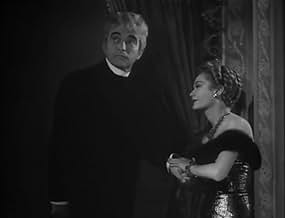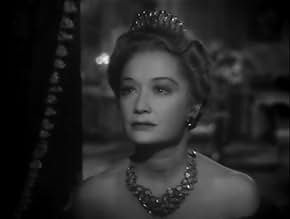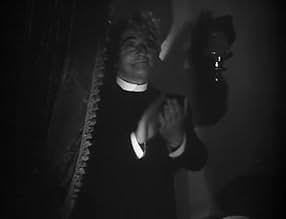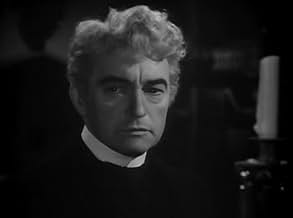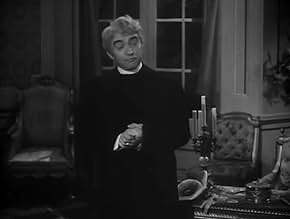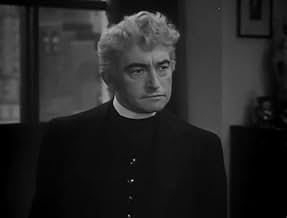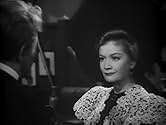Agrega una trama en tu idiomaA messy divorce leaves Mrs. Leslie Carter shunned by Chicago society for being an adulteress and forbidden from having custody of her son. She's determined to return to her hometown in a few... Leer todoA messy divorce leaves Mrs. Leslie Carter shunned by Chicago society for being an adulteress and forbidden from having custody of her son. She's determined to return to her hometown in a few years as a success and with enough money to fight to get her son back. In order to realiz... Leer todoA messy divorce leaves Mrs. Leslie Carter shunned by Chicago society for being an adulteress and forbidden from having custody of her son. She's determined to return to her hometown in a few years as a success and with enough money to fight to get her son back. In order to realize her plans, she heads to New York with ambitions of being a great actress. Despite having... Leer todo
- Dirección
- Guionistas
- Elenco
- Premios
- 2 premios ganados en total
- Dudley Carter
- (as Johnnie Russell)
- Mrs. Peabody
- (sin créditos)
- Miss Humbert
- (sin créditos)
- Man in Belasco's Outer Office
- (sin créditos)
- Observer on Courthouse Steps
- (sin créditos)
- Audience Member
- (sin créditos)
- Scenic Artist
- (sin créditos)
Opiniones destacadas
However, as the very theatrical title lady, MIRIAM HOPKINS gives an over-the-top melodramatic touch to her entire role, making it seem implausible that theater patrons would give her "acting" such a standing ovation. Indeed, the worse part of the film is when it shows Hopkins practicing her art or giving a demonstration of her talent as a stage actress.
The other flamboyant performance is given by CLAUDE RAINS, but rightfully so, since he's playing David Belasco who apparently liked to "ham it up" at every opportune moment whether teaching others how to act or simply acting up a storm in his personal life.
Director Curtis Bernhardt has done nothing to keep Hopkins or Rains from all the theatrical excesses they bring to their characterizations, but we do get some good supporting work from HELEN WESTLEY as the boarding home owner, LAURA HOPE CREWS (as Miriam's mother), JOHN LITEL as a producer, and many other Warner contractees. But RICHARD AINLEY is colorless in the sort of part that could easily have gone to CORNEL WILDE, who instead has a bit part as a wannabe actor at the boarding house. Ainsley's performance is wooden indeed and pales opposite the strident and mannered acting of Hopkins.
Interesting but something about the screenplay suggests that much was altered and cut in producing this film based on Leslie Carter's memoirs. Little JOHNNY RUSSELL appears briefly in two scenes as Carter's son, the one she loses custody of in a court battle. (He played Shirley Temple's little brother in THE BLUE BIRD shortly before this film).
Mrs. Carter was a society socialite whose rather messy divorce and custody battle made her want to seek employment in the theater when she couldn't get a job doing anything else. After a few tries she hook up with David Belasco who molds her into a glamorous stage star from the turn of the last century.
What I found amazing in this whole film was that we never do find out just what in this divorce made her such a notorious woman. The film opens as the divorce proceeding is about to conclude, we never see what it was all about.
We do find out that the terms of the divorce gave her limited visitation rights to her son. That's given as the real reason for her determination to succeed as opposed to possibly trading in on her notoriety. A reason today's audience would definitely understand. In fact why was she billed as "Mrs. Leslie Carter" if it wasn't for the notoriety.
Miriam Hopkins as Carter and Claude Rains as Belasco give a good account of themselves. So do those two old gals Laura Hope Crews as Hopkins's mother and Helen Westley as the owner of the theatrical boardinghouse where they reside. Those two date back to when Mrs. Leslie Carter was a big name on Broadway.
Richard Ainley of the Ainley British theatrical family gives a wooden performance in a part that's underwritten as Carter's second husband. Wasn't Errol Flynn available?
Back in the 1890s divorce in and of itself was scandal. So why weren't we given the salacious details?
Like "Yankee Doodle Dandy," "The Lady With Red Hair" brims over with old -time show-business flavor. (Among other things, both films feature delicious theatrical boarding-house sequences as well as the inevitable scenes set backstage and in theatrical managers' offices.) Also, in "Lady" as in the Cohan biopic, the supporting cast is made up of familiar and beloved character actors of the period, all doing the sort of top-notch work we remember them for.
Need I add that, again like "Yankee Doodle Dandy," "The Lady With Red Hair" doesn't let the truth get in the way of telling a good story? But, also like "Dandy," "Lady" does manage--gloriously!--to convey the esssence of its show-business-giant hero's larger-than-life personality. Everyone knows that Cagney limned Cohan for all time in his brilliant and affectionate portrayal in "Yankee Doodle Dandy"--but few moviegoers realize that Claude Rains did a similar service for David Belasco in "The Lady With Red Hair"- -and did it with a panache that almost equals Cagney's.
Rains-as-Belasco perfectly captures that legendary showman's galvanic personality in all its outsized glory. Rains gives a tremendously enjoyable , superbly observed, and remarkably true-to-life performance as the man all Broadway once called "The Wizard." To watch Claude Rains in action (looking in every shot as if he's having a helluva good time!) in "The Lady With Red Hair" is to see David Belasco leap to life on film as if he can't wait to shake things up on the Main Stem once again.
The film begins with the divorce trial of Mr. and Mrs. Carter. All the reasons for this and what led to this isn't mentioned--other than the fact that she (Miriam Hopkins) was seen as an adulteress. In the end, she loses the case and her millionaire ex-husband is given custody of their young son. In a desperate attempt to earn money, she heads to New York and has some very naive expectations about becoming a star. However, surprisingly, she meets the great Belasco (Claude Rains) and he molds her into a star.
After years of being a star, Mrs. Carter has the nerve to have a personal life. When she marries another actor, Belasco writes her off--vowing never to speak to her again--and vice-versa. What follows is a lean period--when jobs are scarce and she is at her lowest. But, being a trooper down deep, she manages to pull it together and make a career for herself on her own. Oddly, however, this feud and her subsequent success was handled way too fast--creating little tension and ending very abruptly--a major handicap for the film. However, it's still worth watching--as Hopkins is at her best.
¿Sabías que…?
- TriviaLouis Payne, the husband of Mrs. Leslie Carter in real life, coached Richard Ainley, who was playing him in the movie.
- ErroresNone of the Broadway plays mentioned in the movie were performed by Mrs. Leslie Carter. Her Broadway debut was in a play called "The Ugly Duckling" in 1890, not "The Way of Beauty." Her second play was "Zaza," not "The Lady From France." It is not known why the names of her plays were changed.
- Citas
David Belasco: The scene is finished... either applaud or get out of the way.
- Bandas sonorasTwinkle, Twinkle, Little Star
(uncredited)
Traditional
Played offscreen at the start of Miss Humbert's school sequence
Selecciones populares
Detalles
- Tiempo de ejecución1 hora 18 minutos
- Color
- Relación de aspecto
- 1.37 : 1
Contribuir a esta página



